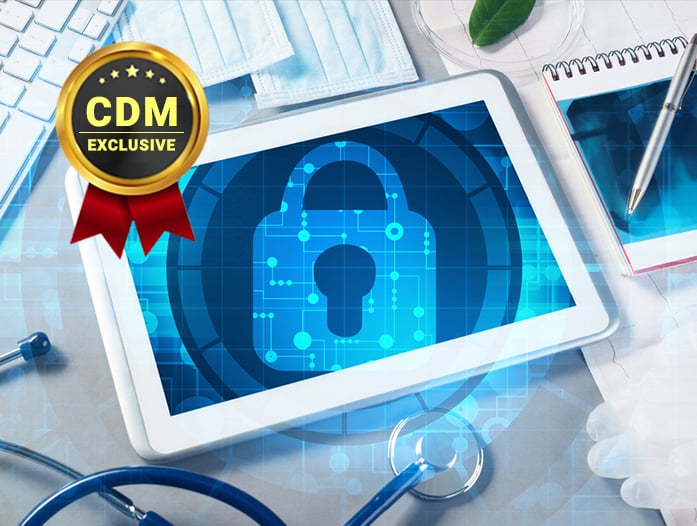By Aaron Sandeen, CEO and Co-Founder, CSW
The number of attacks aimed at the health-care industry has increased significantly during the past few years. Health-care institutions are vulnerable to cyberattacks because they have access to highly valuable information, in terms of money and intelligence, sought after by nation-state actors and cybercriminals. Protected health information (PHI), financial data (such as credit card details and bank account numbers), personally identifiable information (PII) (such as Social Security Numbers), and intellectual property pertaining to medical research and innovation are all included in the targeted data.
A cyberattack on the health-care sector can have severe effects from network disruptions, impeded monitoring, compromised pneumatic pumps and IV infusion tubes, and theft of patient data. In 2021, 45 million people were impacted by health-care assaults, a three-fold increase from the 14 million affected in 2018, according to the United States Department of Health and Human Services (HHS).
The U.S. government classifies the health-care sector as one of the 16 critical infrastructures vulnerable to cyberattacks. Given the importance of the health-care sector, an attack on any health-care provider might have severe results, affecting everything from administration to patient care. On the other hand, cybercriminals have long discovered that it is profitable to pressure hospitals and health-care facilities into paying a ransom for their patients’ data. Therefore, it is not shocking that the sector has experienced several large attacks during the past year. Health-care providers must prioritize their cybersecurity posture, now more than ever, which they may achieve by following our four suggested tips.
- Reduce the Window of Attacks by Avoiding Latency
Health-care vendors and organizations using legacy products must double-check software versions and use the latest versions that address vulnerabilities and apply recommended mitigation measures to ward off ransomware attacks. Legacy products, in general, give attackers a window of opportunity to attack.
- Invest in Biometric Security
As part of the enterprise strategy to manage and securely connect the users, systems, and endpoints to applications and services anywhere, Secure Access Service Edge (SASE) solutions combine several cybersecurity solutions, starting with secure remote access to on-premise, cloud, and online resources. Providing a consistent clinical experience will not only help to improve the quality of health-care services but also improve security by adding an extra layer of protection from external or internal attackers.
- Use Electronic Health Record Systems
Electronic Health Record (EHR) systems provide the most benefit to patients because they allow doctors, providers, and caregivers to share digital data, such as complete patient information, effortlessly. Because of its expanding significance in the health-care industry, a substantial increase in cybercrimes targeted specifically at EHRs has also been seen. To keep sensitive patient information and personal information safe from hackers, EHRs must be closely monitored.
- Implement Multi-Factor Authentication
Multi-factor authentication (MFA), also referred to as two-factor authentication (2FA), has replaced the more traditional password-only authentication approach and has become a crucial security reinforcement tool. To access sensitive patient data, health-care personnel with access to 2FA systems would need soft tokens or physical tokens, including smartphone prompts.
Vulnerability Intelligence Is Crucial
Health-care equipment is a prime target for hackers because of several factors, including a lack of investment in cybersecurity, a lack of cyber knowledge among health-care workers, and products rife with flaws, which give hackers an easy way in.
Knowledge of vulnerabilities is essential. Health-care businesses must be aware of the cybersecurity threats they face and be prepared with plans to address them. The plans may include frequent penetration testing by organizations specializing in evaluating and preparing for threat vectors such as ransomware and distributed denial-of-service (DDoS) attacks or anything else that could expose patient data or compromise lifesaving health-care devices.
About the Author
 My name is Aaron Sandeen and I am the CEO and Co-Founder of Cyber Security Works (CSW), a DHS-sponsored company focused on helping leaders proactively increase their resilience against ever-evolving security threats on-prem and in the cloud. Aaron leads CSW in providing intelligent and actionable security insights at every layer of company operations. Aaron can be reached online at https://www.linkedin.com/in/aaronsandeen/ and at our company website http://www.cybersecurityworks.com/
My name is Aaron Sandeen and I am the CEO and Co-Founder of Cyber Security Works (CSW), a DHS-sponsored company focused on helping leaders proactively increase their resilience against ever-evolving security threats on-prem and in the cloud. Aaron leads CSW in providing intelligent and actionable security insights at every layer of company operations. Aaron can be reached online at https://www.linkedin.com/in/aaronsandeen/ and at our company website http://www.cybersecurityworks.com/

